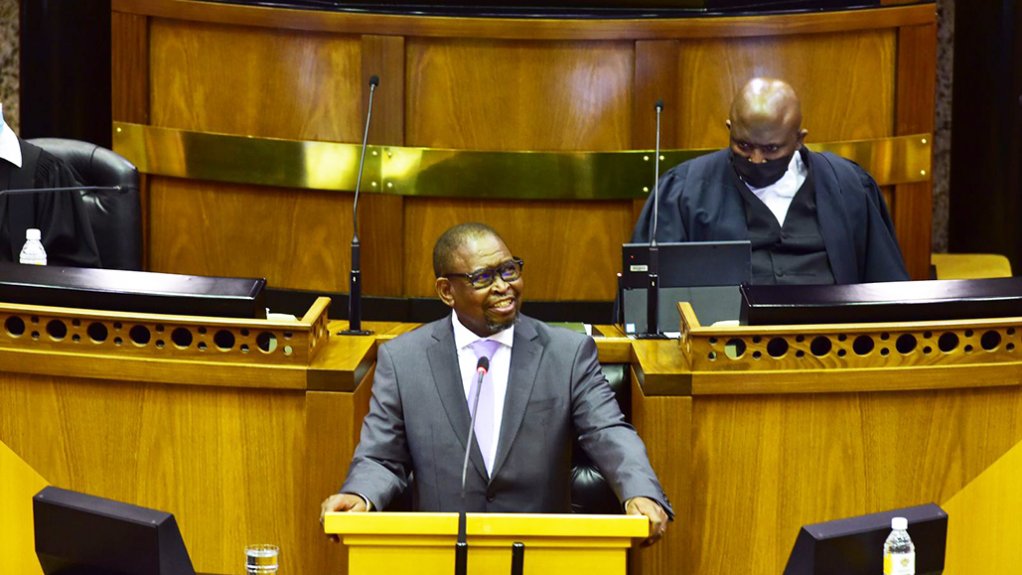Political parties want Minister of Finance Enoch Godongwana to focus his Budget Speech on the country’s economic growth crisis.
Godongwana will, on Wednesday, present the budget allocation for 2024 to Parliament, in Cape Town City Hall.
GOOD secretary-general and MP Brett Herron said that South Africa had a poverty crisis, an unemployment crisis, and a low economic growth crisis, explaining that it needs between 5% and 6% of economic growth to create employment to meaningfully reduce extreme poverty.
Herron highlighted that the current projected growth, of 1% this year and 1.3% next year, was insufficient to address unemployment and poverty.
“To get the economy growing the Minister of Finance must avoid the introduction of austerity measures – budget cuts to infrastructure, and key programmes and services. Introducing austerity measures will exacerbate contraction of our economy and entrench the staggering suffering of the poorest people of this country,” he said.
He added that if Godongwana failed to comprehensively address that crisis then he would doom the country to extended low economic growth and deepening poverty and unemployment.
GOOD said the Minister must invest in the basics of economic growth: infrastructure, electricity supply, freight transport networks, water infrastructure and digital communications.
NEW DEBTS
The Inkatha Freedom Party (IFP) expects the Minister to announce an increase in infrastructure development projects, particularly in rural areas, this includes roads, bridges, town-planning, new bulk water and stormwater drainage and sewer systems.
“After 30 years controlling the purse strings of the public’s money, the ANC [African National Congress] must be cautioned to not fiscally dump finances onto quick election-winning projects to curry favour with the electorate,” the IFP said.
The party cautioned Godongwana against delivering a speech that will only “sound nice” to the electorate but that cannot be implemented by government.
“It is our hope that the ANC does not commit government’s resources to pie-in-the-sky plans or take on any new debt, that will likely result in setting up the next government for failure,” the IFP explained.
FISCAL SUSTAINABILITY
African Christian Democratic Party (ACDP) MP Steve Swart said that National Treasury’s most recent February data showed that public finances were in a poor state and had worsened since November’s Medium Term Budget Policy Statement (MTBPS), with the budget deficit expected to widen from February’s Budget forecast of 4% of gross domestic product (GDP) and then 4.9% in November, to 6% of GDP.
Swart explained that this fiscal slippage was largely owing to lower revenue performance, lower economic growth (expected at 0.5% of GDP), a higher public sector wage bill, and higher debt service costs.
“This delays attempts at fiscal consolidation, with gross debt to GDP set to escalate from last February’s projected 72.2%, and November’s 74.7%, and now expected to peak at 77.7% in 2025/26, as projected,” he said.
This was far higher than the debt ratio of 60% that was generally seen as the maximum sustainable debt ratio for an emerging economy like South Africa, he added.
In view of this, the ACDP expects further details, in Thursday’s Budget Speech, of additional rules required to provide an anchor for fiscal sustainability alluded to in November’s MTBPS.
Swart said lower economic growth had largely been caused by ongoing loadshedding and severe challenges with logistics, both rail and ports, as well as reduced demand for commodities.
He explained that fiscal consolidation would be far more difficult to achieve in this election year, saying it was assumed that the Social Relief of Distress Grant paid to about 8-million people would come to an end in March 2024.
There are also further pressures for bail-outs to State-owned enterprises, such as Transnet, which has requested a R47-billion equity injection or loan, as well as for taxpayers to take over R61-billion of its R130-billion debt.
“As it is, National Treasury provided an additional R47-billion guarantee already to make it easier for Transnet to raise capital in the markets. This must be seen against the amount appropriated against the Eskom Debt Relief Act and the payments to Eskom amounting to a staggering R44-billion for the year,” Swart said.
Meanwhile, he said the implementation of the unaffordable National Health Insurance Bill would probably not even be factored in, given the fiscal constraints.
The ACDP believes that the only long-term solution to a debt spiral is a rejuvenated economy, premised on stable energy provision and a vastly improved logistics network.
EMAIL THIS ARTICLE SAVE THIS ARTICLE ARTICLE ENQUIRY
To subscribe email subscriptions@creamermedia.co.za or click here
To advertise email advertising@creamermedia.co.za or click here











